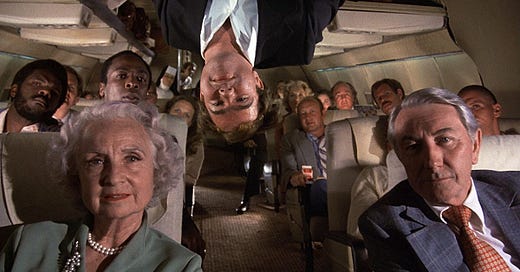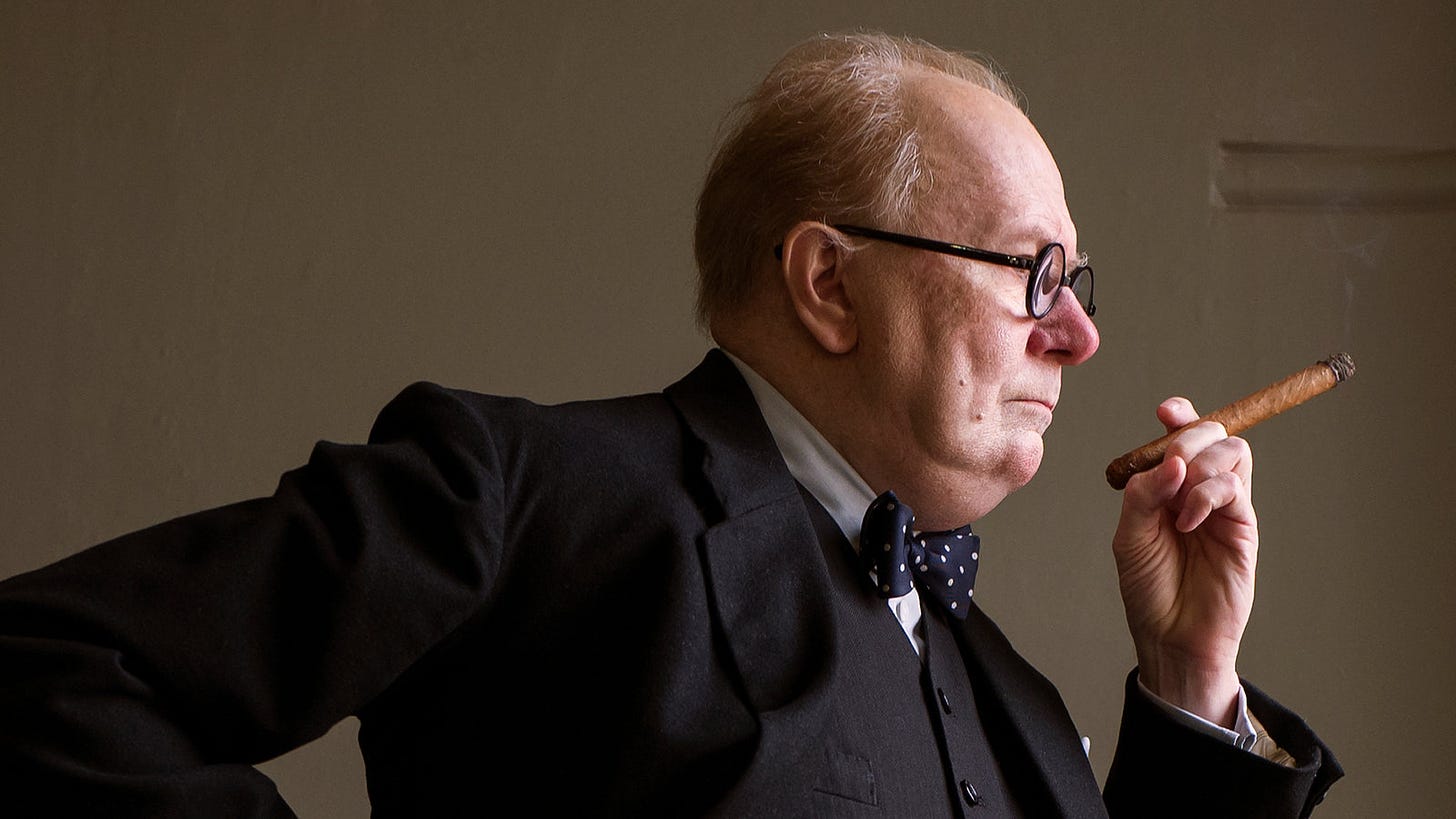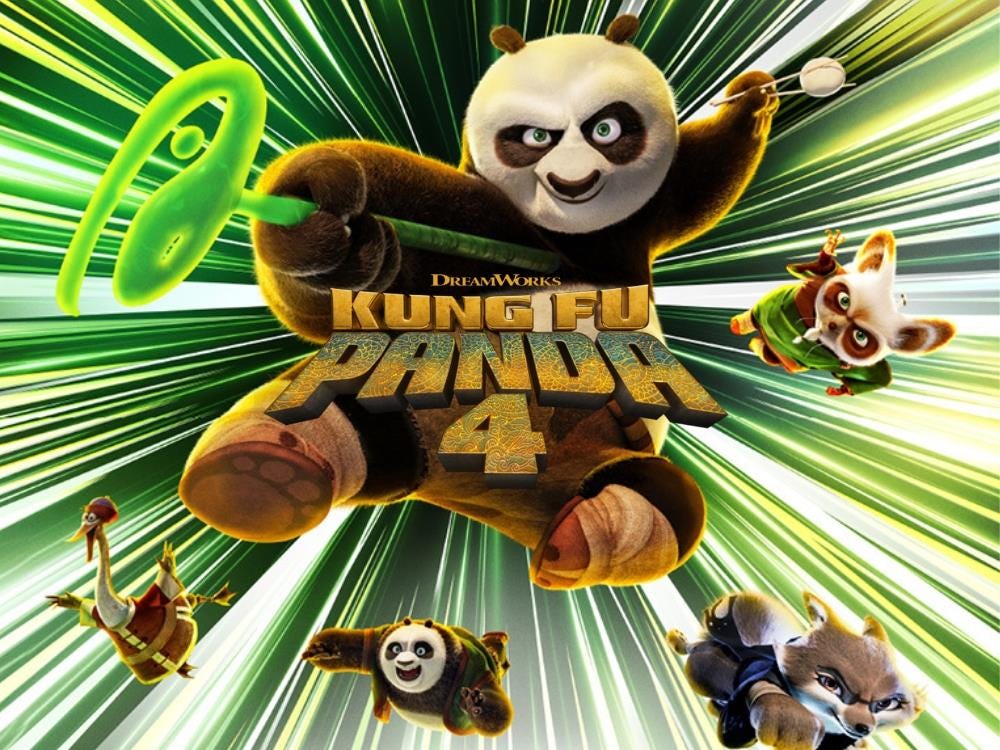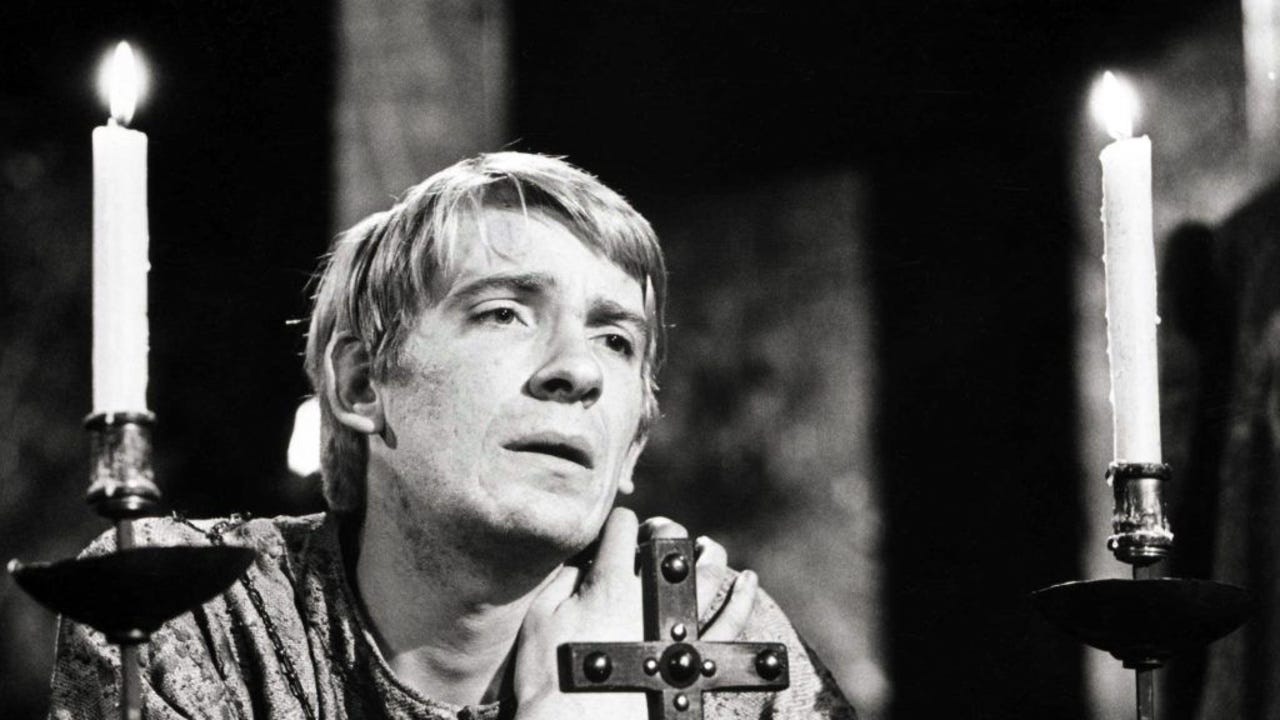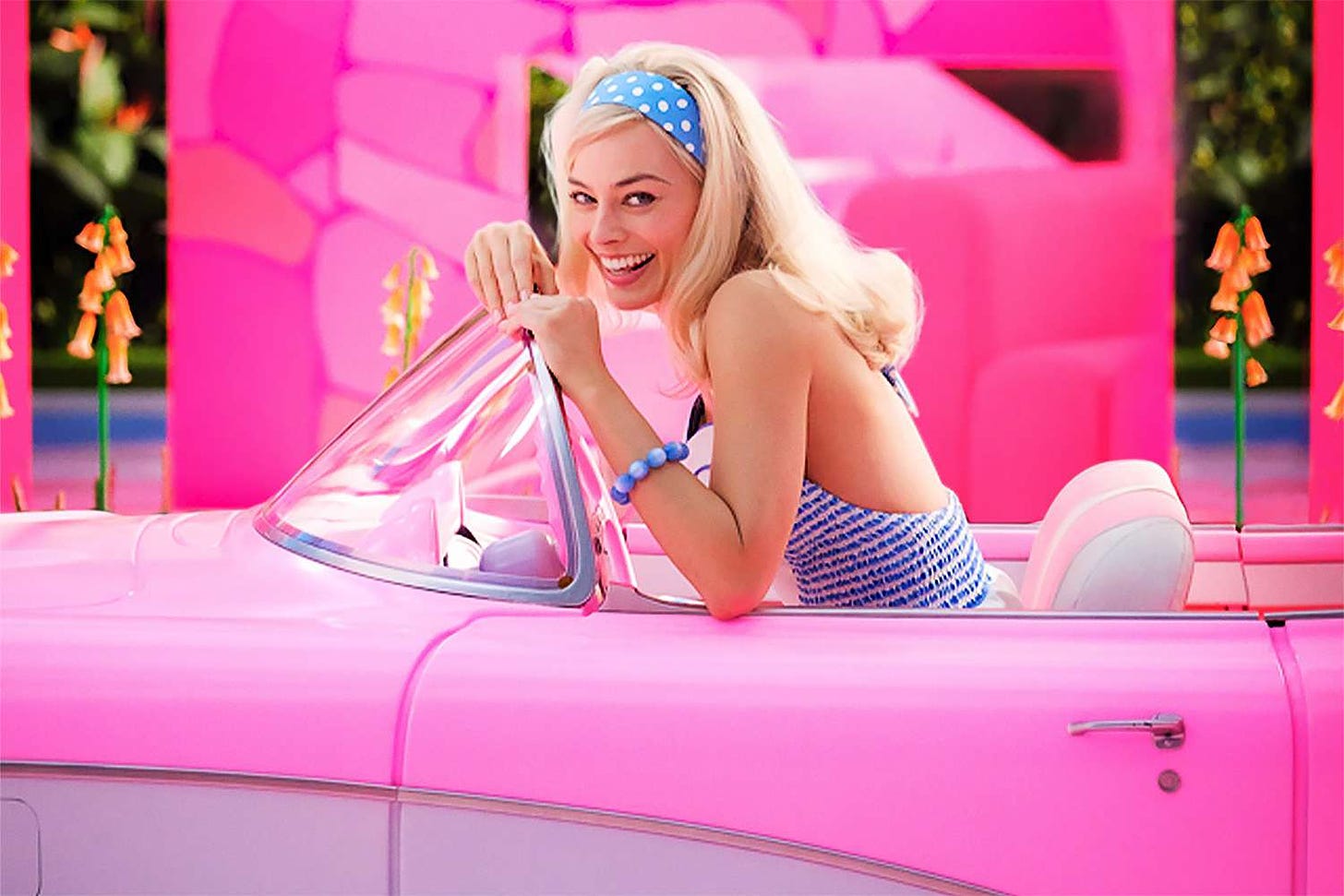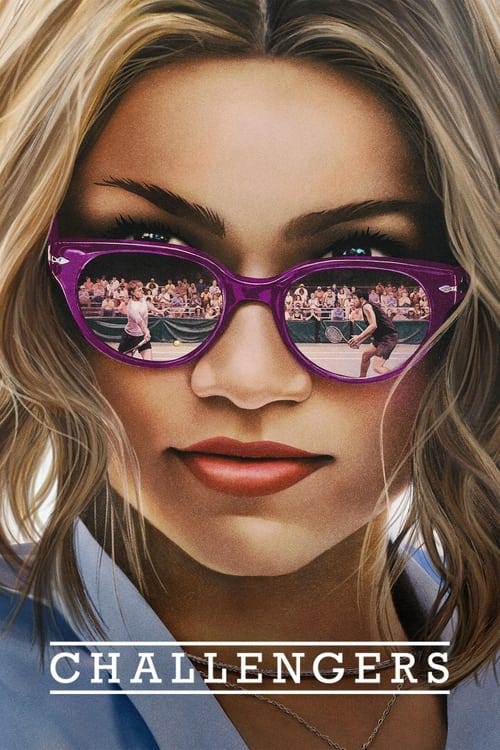The line above comes from the aviation pioneer, Orville Wright. I wonder what he would have made of contemporary inflight entertainment? What follows is a selection of reviews from ReidsonFilm’s recent travels, including a guest appearance.
Darkest Hour (2017)
Gary Oldman's performance as a cantankerous Winston Churchill is the exception in an otherwise mediocre political drama focusing on the internal conflicts of the Cabinet War Rooms during one of the most decisive but desperate moments of the Second World War.
Oldman embodies a nuanced portrait of Winston Churchill. We witness his stubborn resolve and fiery rhetoric, but outside the turbulence of the war rooms, we are also privy to moments of quiet vulnerability.
However, the surrounding film fails to meet this complexity, with the rest of the cast feeling bland in comparison. With Adolf Hitler as an off-screen presence, Churchill's political rivals, Halifax and Chamberlain, serve as the main antagonists in the story. Yet their scheme to oust Churchill and make a peace deal with Hitler acts more as a half-baked foil to demonstrate Churchill's perseverance than as a genuinely exciting plot point. Elizabeth Layton, Churchill's secretary, is introduced as a more personable insight into the narrative and as an outsider's perspective on the political battlefield of Westminster. But ultimately, her story is sidelined and left unresolved.
The film climaxes with Churchill's famous ‘We shall fight on the beaches’ speech. Oldman delivers it with gritted-teeth determination and a gravitas that undoubtedly captures the historic moment well. Yet, this is somewhat undermined by the preceding scene, where Churchill takes an impromptu ride on the London Underground and is inspired to continue the fight by a carriage full of conveniently enthusiastic commuters. I’m sure things were different ‘back in the day’, but the Tube I ride on isn't as full of these happy-go-lucky goofballs as the film implies. And although I'm no historian, I'm pretty sure this scene is pure fantasy.
It’s also worth mentioning I watched the film with Korean dubbing. I can't really comment too much on how this affected the experience as I haven't seen it in English, but the enthusiastic Korean voiceovers definitely injected some energy and humour into the film's more lacklustre scenes.
N.
Kung Fu Panda 4 (2024)
I’ll be honest, Kung Fu Panda 2 and 3 completely passed me by. So I was surprised to find that Kung Fu Panda 4 seems to still have some of the zest and zeal of the original film. I’m not sure what I missed in the last two films but that didn’t seem to matter.
Yes, there’s no doubt that when a family film franchise explodes to the level of Kung Fu Panda, you expect that by the fourth iteration it is little more than a cash grab.
But Kung Fu Panda 4 was a perfect bit of light entertainment during my flight. Its combination of action/adventure and physical comedy still has life left in it, and Jack Blacks unmistakeable voicing of the eponymous food-loving Kung Fu master, Po remains the beating heart of it all.
Beneath all the slapstick and iffy puns like “inner peace…inner peace…inner peace.dinner please”, Kung Fu Panda 4 does ask some interesting questions about legacy, and acceptance of change as Po must hang up the mantle of ‘Dragon Warrior’ and name his successor in order to become a spiritual leader.
For further reading on this, I recommend the YouTube review on Kung Fu Panda 1, about its engagement with Chinese philosophy and culture which I felt was still very much applicable in Kung Fu Panda 4.
C.
Henry VI - The War of the Roses (1965)
What better way to while away a few hours (running time 163 minutes) than to watch a play by perhaps the greatest English dramatist. Unfortunately not available on the airline’s playlist but downloaded pre-flight on BBC iPlayer, Shakespeare’s Henry VI is the first film in a trilogy that was famously broadcast over three successive nights in 1965. Along with Edward IV and Richard III - comprising The War of the Roses - Henry VI stands up surprisingly well today as a filmed theatrical performance.
Watching it mid-air was a strikingly immersive experience. The camera movement is energetic, and the expressionist low-angle shots bring to mind the black and white films of Kurosawa. Shakespearean soliloquies are often delivered direct to camera and the influence on the modern stage is clear. There is also the pleasure in seeing renowned theatre greats, such as David Warner and Janet Suzman, appearing as relative newcomers. Needless to say, Edward VI and Richard III have been downloaded for the return flight.
S.
Barbie (2023)*
As the sole female member of the ReidsonFilm family, how did I miss this feminist spin on my childhood doll of choice? With a delayed 10 hour flight ahead of me, this had to be first on my playlist. Even on that small, back-of-seat screen, the visuals were engaging and the perfectly pink Barbieland far exceeded the world of my childhood imagination.
The gags, coming thick and fast, had me unselfconsciously laughing out loud and impatient with the occasional inflight interruption to my viewing. Margot Robbie is just perfect as Stereotypical Barbie and Ryan Gosling’s cute but dumb Ken is adorable. When Barbie develops flat feet and - heaven forbid! - cellulite, the pair venture into the real world looking for answers. Ken’s transformation as he discovers the testosterone-fuelled patriarchy (the Kendom!) is particularly amusing. However, as the film sashayed towards its completion at almost two hours, I started to tire a little at what could be argued was a one joke plot and reflected that I was always more Action Girl than Barbie…
J.
Challengers (2024)
Challengers, directed by Luca Guadagnino, follows the complicated lives of three tennis prodigies whose tangled relationships serve as both the emotional and narrative core of the film. Art (Mike Faist) and Patrick (Josh O’Connor) are former college roommates and fierce rivals on the tennis court. While Patrick is the more naturally gifted player, it is Art who has risen to prominence and won championships - though his career is now in a slump. Tashi (Zendaya), the most talented of them all, is poised for greatness, but then a predictable and traumatic event on court both derails her career and causes Art and Patrick to fall out. Consequently, Tashi channels her competitive drive through Art, vicariously living out her ambition in his success.
This exposition is unveiled through scenes which interweave a present-day tennis match between Art and Patrick. Instead of the story unfolding sequentially, we navigate through a series of flash-forwards and flashbacks which is arbitrarily confusing, outdone only by the drawn out slow motion sequences and disorienting point-of-view shots from the perspective of the tennis ball during the match. Rather than adding depth to the action, these technical flourishes felt more like a jarring disruption to my viewing experience.
Furthermore, the incessant product placement left me confused at times as to whether I had missed a transition to the in-flight entertainment advert break. This kind of propaganda is not new to cinema, but Challengers takes it to the extreme. There is a series of shots that cut between Adidas logos, Uniqlo branding and a perfectly framed Coke can that feels particularly egregious. One could argue that this overwhelming presence of sponsorship is meant to reflect the role of commercial partnerships in pro tennis, but here it simply feels gratuitous.
The film doesn’t really offer a convincing reason for the three to remain in a toxic menage-a-trois other than insipid attraction. The trio are quite unlikeable, which isn’t a flaw in itself, but the confused and flat dynamics between them left me uninvested.
Challengers attempts to deliver both a sports drama and a romance, but its erratic pacing, disorienting visual choices, and underdeveloped character dynamics result in a misfire. The over-stylized tennis sequences fail to heighten the emotional stakes of the match. Similarly, the relationships between Art, Patrick, and Tashi feel shallow and unconvincing, with motivations that remain unclear and a dynamic that lacks depth. In the end, Challengers commits a double fault: its style fails to support the substance, and its attempts at emotional resonance fall flat.
T.
*If you haven’t seen the ReidsonFilm view on the cinematic spectacle of 2023, Barbenheimer you can find it here:
Thank you for reading Reids on Film. If you enjoyed our review please share with a friend and do leave a comment.

